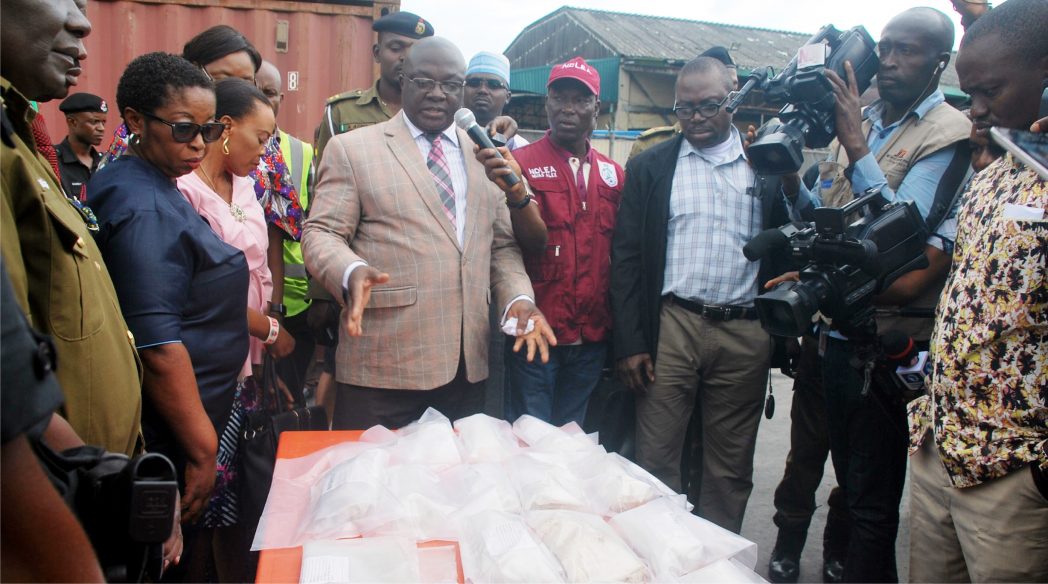Niger Delta
Drug Trafficking: NDLEA Arrests 29 Suspects In Edo

The National Drugs Law Enforcement Agency (NDLEA), Edo State Command says it has arrested 29 suspected drug traffickers.
Mr Buba Wakawa, State Commander of the agency disclosed this in an interview with newsmen in Benin yesterday.
Wakawa said the suspects, comprising 23 males and six females, were arrested in November.
He said that the suspects were in possession of about 3,756.82 kilo grammes of narcotics at the time of their arrests.
According to the commander, the bulk of the seized drugs were cannabis commonly referred to as marijuana.
The commander said one of the suspects said the love for money led him into the criminal act.
“I was a commercial motorcyclist until things became very bad that I could not afford my house rent and even feeding.
“A friend of mine took me to Sobe to farm cannabis. He said that I will make enough money to settle myself and my family. However, my story is different.
“The first year was poor and the second year, thieves and bush fire destroyed my harvest.
“This year, I decided to bring my harvest home but unfortunately NDLEA officers arrested me and seized my drug,” the commander quoted the suspect to have said.
He said that the suspect from Ondo State and married with a child was found in possession of 684 kilogrammes of dried weeds that tested positive for cannabis.
He would soon be charged to court. The Edo commander also disclosed that the state command had inaugurated a Special Patrol Squad to tackle illicit cases of drug trafficking and abuse.
He explained that the strategic approach was aimed at intensifying surveillance operations to cut off illicit movement of narcotics as we approach the end of year festive season.
“What we have done is to constitute a team of officers to beef up patrol thereby making the command more dynamic and vibrant in tackling the problem of drugs in Edo.
“This is a season where the love of money lures many people into criminal activities including drug trafficking.
“That is why we are poised to intercepting the movement of drugs before they get to the final users.
“Cutting off the supply of drugs is a vital strategy in preventing drug and substance abuse in our society,” Wakawa said.
He warned drug barons to quit illicit drug cultivation and trafficking in the state or be prepared to face the wrath of the law.
“The patrol will leverage on intelligence-led techniques in intercepting drugs as well as arresting traffickers for prosecution,” he said.
Niger Delta
Nembe Renders Development Scorecard … Defers King Koko’s Annual Festival

Niger Delta
Oborevwori Celebrates Wife At 56

Niger Delta
NDDC Restates Commitment To Support Security Agencies In N’Delta

-

 Sports2 days ago
Sports2 days agoArsenal Women End Man City’s Invincibility
-

 Sports2 days ago
Sports2 days agoU-20 WWC: Falconets claim qualifier win
-

 Sports2 days ago
Sports2 days agoInsurance Deepen Enyimba’s Trouble
-

 Sports2 days ago
Sports2 days agoYouth Olympics preparation Gears up
-

 Sports2 days ago
Sports2 days agoCologne Youth Team Set Crowd Record
-

 Sports2 days ago
Sports2 days agoTornadoes Set For NPFL exit over Stadium Ban
-

 Sports2 days ago
Sports2 days agoPalmer Stars As Chelsea Compound Wolves Woes
-

 Sports2 days ago
Sports2 days agoBarca Pull Out Of Super League Project

